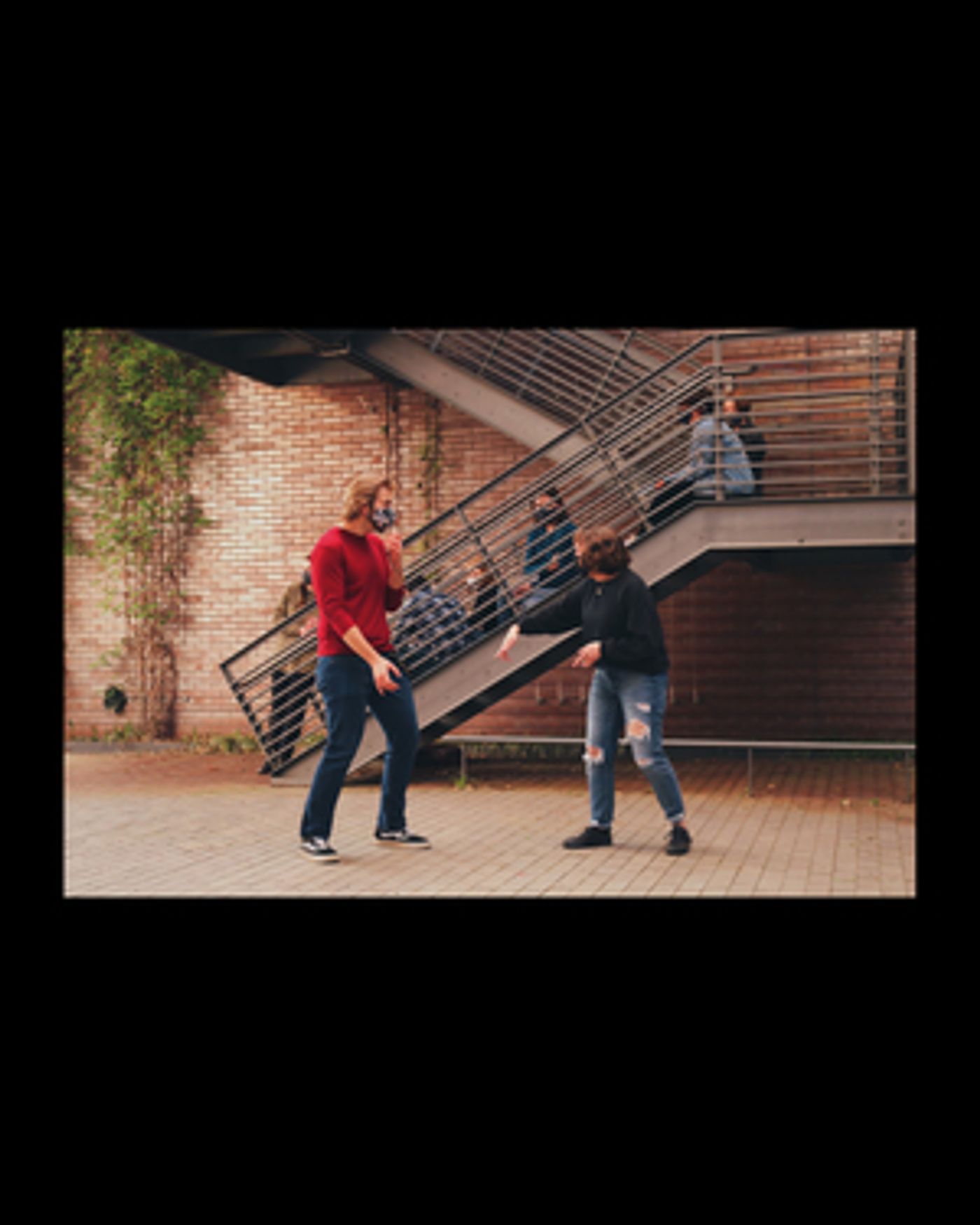Student Blog: Want to Be a Better Writer? Do Improv.
What Faking It Teaches You About Story

Oh, good. Another person who thinks they're hilarious because they joined their college improv troupe here to preach about their ridiculous hobby. I'm sure they must be so pleased with themselves-maybe even full of themselves-for managing to get a few giggles out of their lukewarm jokes. We all know the reputation of improv people. (It's not overwhelmingly positive, to say the least.) When we picture an improv troupe, the immediate mental image is a flock of unwashed white men who love to yell. And, sure, that stereotype may have some basis in reality-greasy boys will always abound in places where they can show off-it has not been my experience.
Do I have your attention? Good.
This is a plea to all of the writers out there-the introverted, hiding-behind-a-laptop, don't-look-at-me writers. Do improv. Join a troupe. Do it with your friends. Do it by yourself. (Robin Williams did!) There's the obvious benefit that everybody points to with improv-an increased ability to think and speak on the fly, growing more comfortable with public speaking. If that's what you're hoping to gain out of the experience, then look no further. But I'm here today to tell you about the secret benefit of improv that nobody ever thinks of-writing.
Every hour spent practicing improv is an hour spent writing. Any time you are in a scene, you are forced to participate in all of the fundamentals of fiction writing: character design, conflict, development, resolution. You create a unified narrative with absolutely no planning. (Anybody who has ever participated in NaNoWriMo is currently shuddering in terror.) When we added four new members to our improv troupe this spring, we spent most of their rehearsal time leading up to our first show working on the basics of improv rather than specific games. This meant a lot of time spent on exercises that demand strong characterization and evident conflict.
In improv, you must create a distinct character with likes, dislikes, and a strong set of beliefs-any story is impossible without this. A plot is not merely the characters doing things, but rather the characters engaging with a series of interconnected actions that, in some way, must build to a conflict. Ultimately, in a show setting, the scenes that fall flat are the ones that meander-they never stick to a plot point or a character trait long enough to generate electricity. This is also true of stories.
Much like writers, we use prompts to incite our scenes. Here's a dirty little secret of improv, though-the suggestions don't matter as much as they seem to. A scene that begins with the suggestion "digging" may soon turn into an odyssey around an abandoned amusement park. A scene that begins with "pressure washer" will quickly morph into a dramatic tale of failed romance and bitter feuds. As an improviser and a writer, it is your job to use the prompt for as long as it serves you and then mercilessly ditch it for the sake of your story. The most successful scenes (and writing exercises) are the ones that take on a life of their own outside of the spark of inspiration.
Every improv scene is a masterclass in story. Whether you want to write a novel, short story, play, or movie, improv is the perfect hands-on activity to learn the science of writing a story. Now, writers, go on and make it up.
Videos

